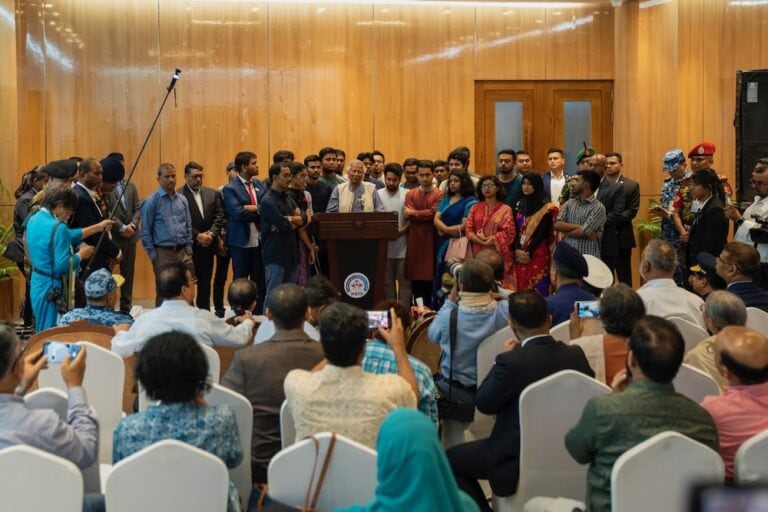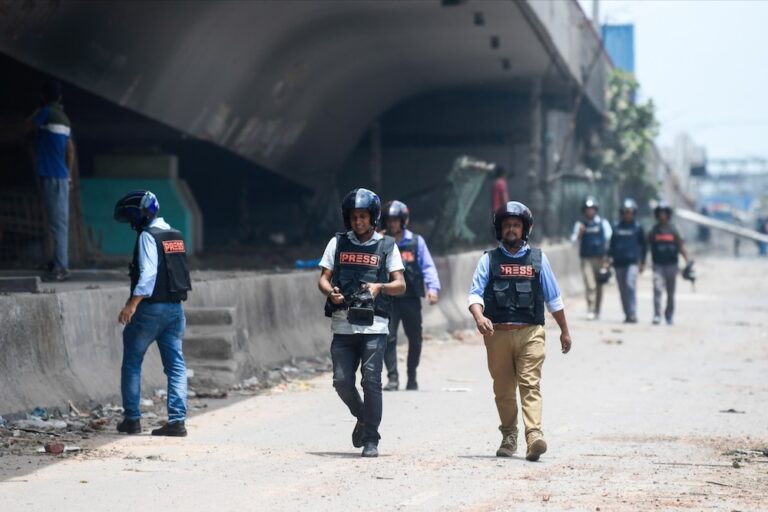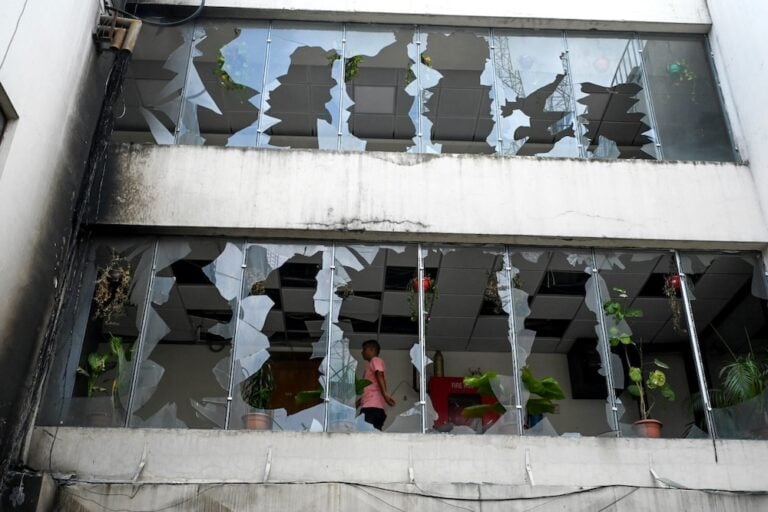(Media Watch/IFEX) – The following is a summary of the 1998 State of the Media in Bangladesh report compiled by Media Watch, Bangladesh: To obtain a copy of the complete report, please contact Bulbul Monjurul Ahsan, Executive Director of Media Watch. The full report will be available by the second week of March 1999. Happy […]
(Media Watch/IFEX) – The following is a summary of the 1998 State of the
Media in Bangladesh report compiled by Media Watch, Bangladesh:
To obtain a copy of the complete report, please contact Bulbul Monjurul
Ahsan, Executive Director of Media Watch. The full report will be available
by the second week of March 1999. Happy New Year to all.
Bangladesh 1998
Two journalists were killed and twenty were injured in 1998. At least 18
journalists were assaulted and 16 others were attacked while exercising
their professional duties.
Miscreants attacked the cars of nine journalists over several occassions. At
least twenty four journalists received death threats and six were arrested
and tortured while in custody.
Two journalists were kidnapped and two vehicles carrying newspapers were
attacked. At least four newspaper offices were attacked and some were set on
fire.
There were nine cases of legal action taken against journalists and courts
issued summonses against four. At least one journalist was thrown in jail.
In 1998, two newspapers and eight periodicals were closed, and the licences
of four newspapers were cancelled by the government. On the other hand,
police arrested at least ten individuals posing as journalists.
In 1998, violence towards the media was on the increase throughout the year.
Similarly to the previous year, and against a background of parliamentary
democracy, the press paid the price of growing frictions between the two
main political parties, who took turns running the country. On several
occasions, police became the most active third party in attacks on
professional journalists. Freedom of the electronic media (radio and
television) remains the most important demand of civil society in the
country. The government created a committee to finalise the achievable
recommendations of the Radio -TV privatisation commission.
Journalists were often used as outlets for the countless frustrations of
Bangladeshi society. To analyse the situation in 1998, one can say that
conditions remain the same.


